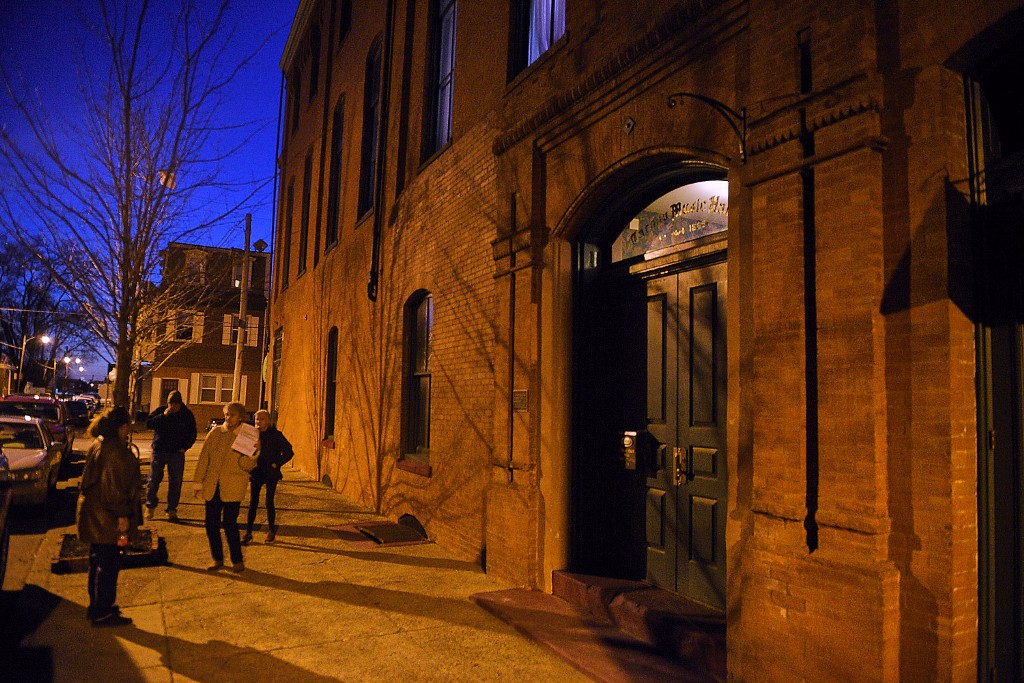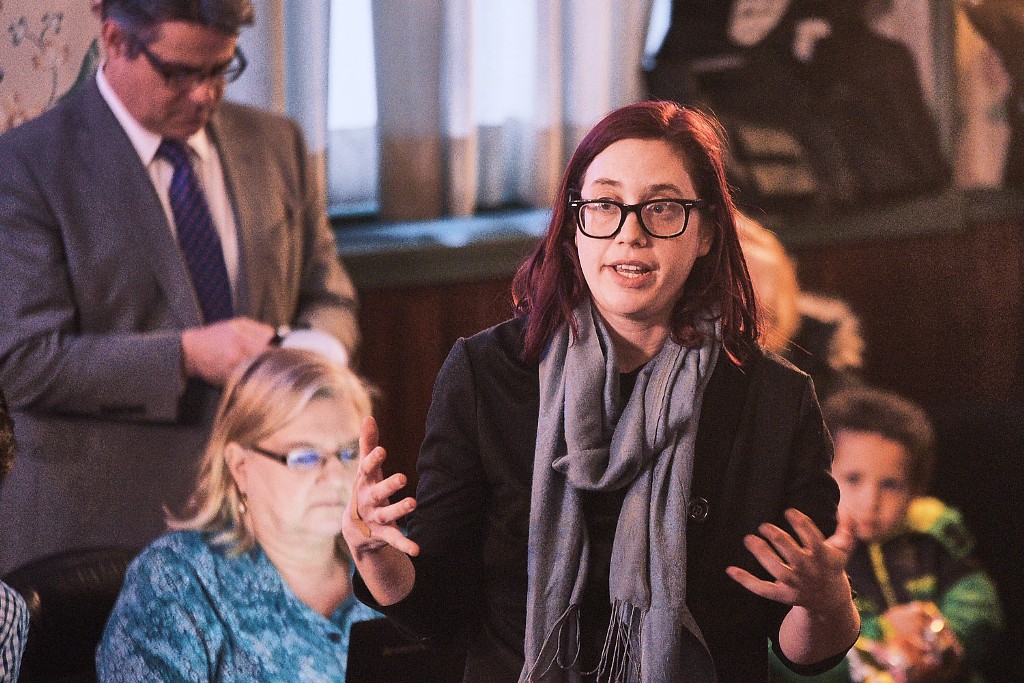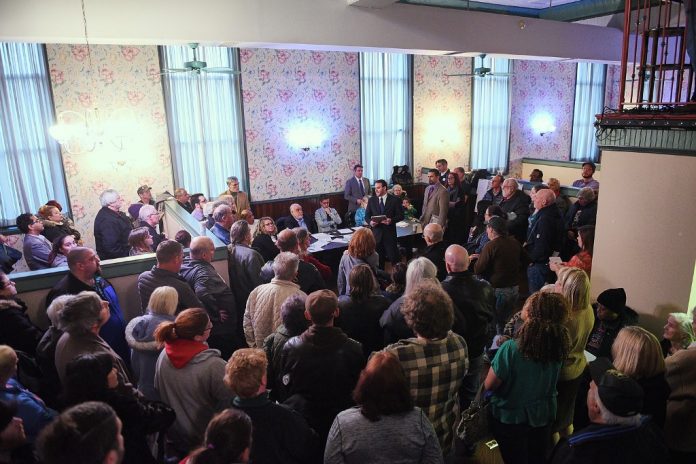MARIA YOUNG / TIMES PHOTO
During a special meeting of the Tacony Civic Association on Thursday night, zoning attorney Justin Krik told more than 150 area residents that his clients’ plans for the historic Tacony Music Hall are in keeping with the 19th-century landmark’s original purpose.
“It was built for education and the arts,” Krik said.
It just so happens that his clients specialize in education and arts of a sexual nature. And with that acknowledgment, leaders of the proposed Philly Music Hall sex-positive club and its potential future neighbors engaged in a two-hour question-and-answer session covering a multitude of topics, including member vetting, alcohol consumption, zoning nuances, public safety, parking, child daycare and, indeed, sex itself.
“We would be the first sex-positive community on the East Coast,” said Philly Music Hall’s co-founder, Deborah Rose Hinchey. “These communities are transient right now. We’re looking to establish a permanent space.”
Most of the neighbors on hand didn’t care for that idea. In voting by written ballot, about 80 residents opposed the club’s zoning application. About 30 voted for it. Precise counts were not immediately available. The civic association will send a letter of opposition to the city’s Zoning Board of Adjustment in advance of an April 5 hearing on the case. The ZBA may grant a zoning permit anyway.
Constructed in 1885 and listed on both the national and city historic registries, the Music Hall is at Longshore Avenue and Edmund Street within the Disston Estate, a deed-restricted district originally developed by saw tycoon Henry Disston. In recent years, it’s housed a child daycare, a real estate office, the Tacony Historical Society and the Tacony Community Development Corporation.
The three-story red brick building was sold in December. Philly Music Hall’s organizers rent the site from the new owner. The real estate business, historical society and CDC have relocated. The daycare center still occupies the first floor.
Hinchey’s organization seeks a so-called special exception from the zoning board to present “live entertainment for more than 50 people” in the property, which is zoned for commercial use. The zoning code language characterizes the use as “night club/private club.” Admission would be restricted to members only. The club would offer game nights and movie nights, “pot luck” dinners and discussion groups covering sexual “skills and theory,” Hinchey said.
“There will be more educational events and less of a party atmosphere,” Krik said.
Yet, at Thursday’s meeting, it seemed like most of the neighbors wanted to know more about the role of actual sex in the program.
Hinchey said that sexual activity is “not encouraged” on the premises and “not the purpose or intent of this space.” Yet, sex is “not prohibited” on site. That said, the club, its employees and its volunteers will not perform sex acts in exchange for compensation, although there would be membership fees. No one under 18 would be allowed to take part in club activities. The club would ban any consumption of alcohol or drugs on site.
“It’s not a nightclub. It’s an intoxicant-free space,” Krik said. “This is not a stepping stone to an application for a liquor license.”
At one point in the meeting, City Councilman Bobby Henon said he is unaware of any language in the city code that regulates sexual activity in the context described by the applicants.
Much of the feedback that TCA President Joe Sannutti got from neighbors involved their concern about what might happen to the building if the club were to vacate it. Their fear is that another occupant would try to use the nightclub/private club zoning to open a drinking establishment that might attract rowdy patrons, the civic leader said.
Hinchey said that if her organization obtains its zoning permit, it would like to begin operating on May 5. ••

MARIA YOUNG / TIMES PHOTO

Philly Music Hall’s co-founder Deborah Rose Hinchey answered questions from residents during a special meeting on Thursday night regarding a proposed Philly Music Hall sex-positive club. The civic association will send a letter of opposition to the city’s Zoning Board of Adjustment in advance of an April 5 hearing on the case. The ZBA may grant a zoning permit anyway. MARIA YOUNG / TIMES PHOTO





